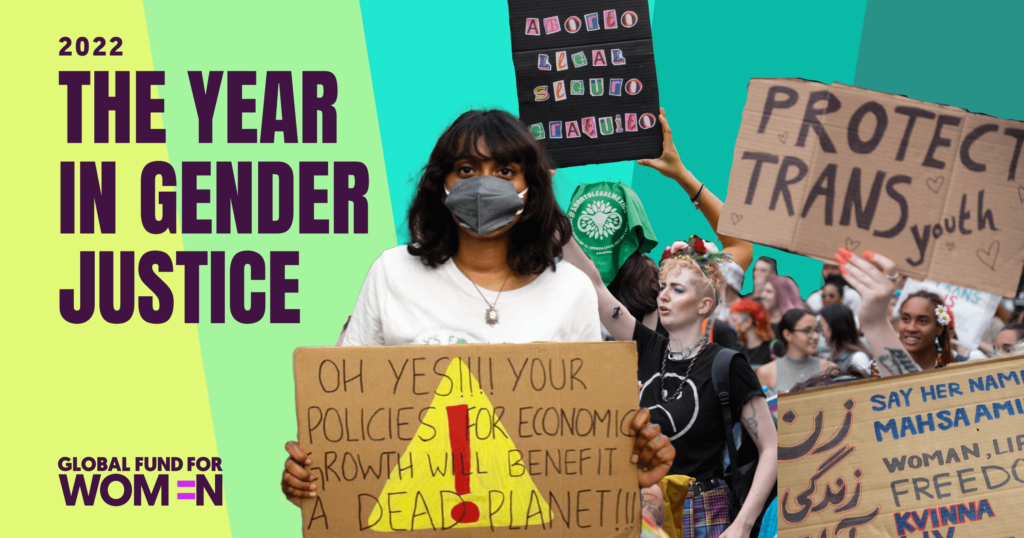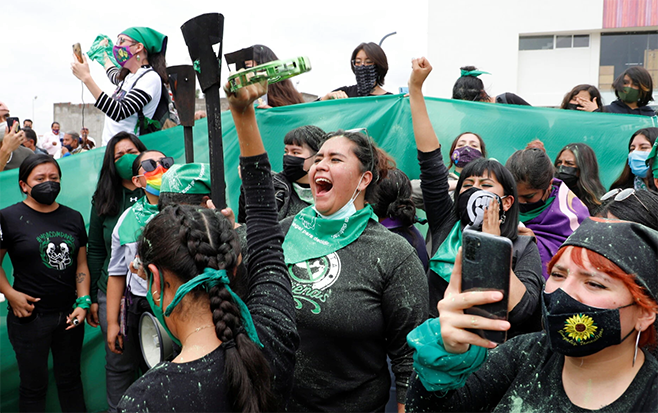2023
Year in
Gender Justice
Gender Justice
How did feminists show up in a year that careened from crisis to crisis? Gender justice movements, organizations, and activists came together in Turkey, Syria, Morocco, Afghanistan, Sudan, Ukraine, Israel, Palestine, the Democratic Republic of the Congo, Malawi, Zimbabwe, Mozambique, Mexico, Libya, and beyond as frontline responders, unpaid caregivers, and community mobilizers this year.
As we look back at 2023, we see victories for gender and racial justice, organized backlash against gender equality, and events whose full meanings are still to come. Progress doesn’t always move in a straight line—and this year, we are eager to share the throughlines we see in movements across the globe for gender and racial justice, which converge with work for climate justice, for bold, ambitious, and expansive movements to create meaningful change that will last beyond our lifetimes.
1. CALLS FOR REPRODUCTIVE HEALTH AND JUSTICE ECHO AROUND THE GLOBE

Photo courtesy of Milagromilagra, CC BY-SA 4.0, via Wikimedia Commons.
The Marea Verde, or “Green Wave,” continued to move through the Americas and rolled all the way up to Mexico: in September, the Mexican Supreme Court decriminalized abortion and ruled that national laws prohibiting the procedure are unconstitutional. Brazil's highest court is deciding whether to decriminalize abortion up to 12 weeks—though no vote has been scheduled yet. And when abortion is on the ballot in the United States, the issue is a winner, as we saw in November’s elections in Ohio, Virginia, and Kentucky.
On the Continent, one of the most progressive legal instruments for women’s and human rights passed a milestone: in 2023, the Maputo Protocol turned 20. So far, 44 African countries have ratified this treaty, with South Sudan as the most recent signer this summer. While there is still more to do to make the agreements into reality, the protocol highlights equal protection under the law, and the right to contraception, as well as including articles that support ending child, early, and forced marriage, and stopping female genital mutilation/cutting.
PARTNERS IN PROGRESS
El Grupo de Información en Reproducción Elegida (GIRE) has spent the last 31 years sharing objective, scientific, and secular information about abortion in Mexico, positioning it as an issue of public interest, public health, and social justice. They are one of many partners who contributed to the Green Wave victory in Mexico, and their work made it to the United States news media: NPR featured GIRE as experts in their article about the Mexican Supreme Court’s decision to decriminalize abortion.
2. YOUTH FIGHTING FOR CLIMATE JUSTICE—AND WINNING!
Climate injustice is heading to the world’s highest court, thanks to the relentless advocacy of grassroots Pacific Island feminists—and especially students and young climate activists. In March of this year, United Nations member states unanimously approved the Resolution for an International Court of Justice Advisory Opinion (ICJ-AO) on Climate Change and Human Rights, paving the way for transformative climate action globally. This resolution was the result of the Pacific Island nation of Vanuatu’s call for the UN to take a firmer stance on the responsibilities of wealthy nations to protect those most affected by climate change.
And in the United States, young climate activists in Montana scored a groundbreaking legal win in August, when a judge ruled that state agencies have a duty to protect citizens from climate change.
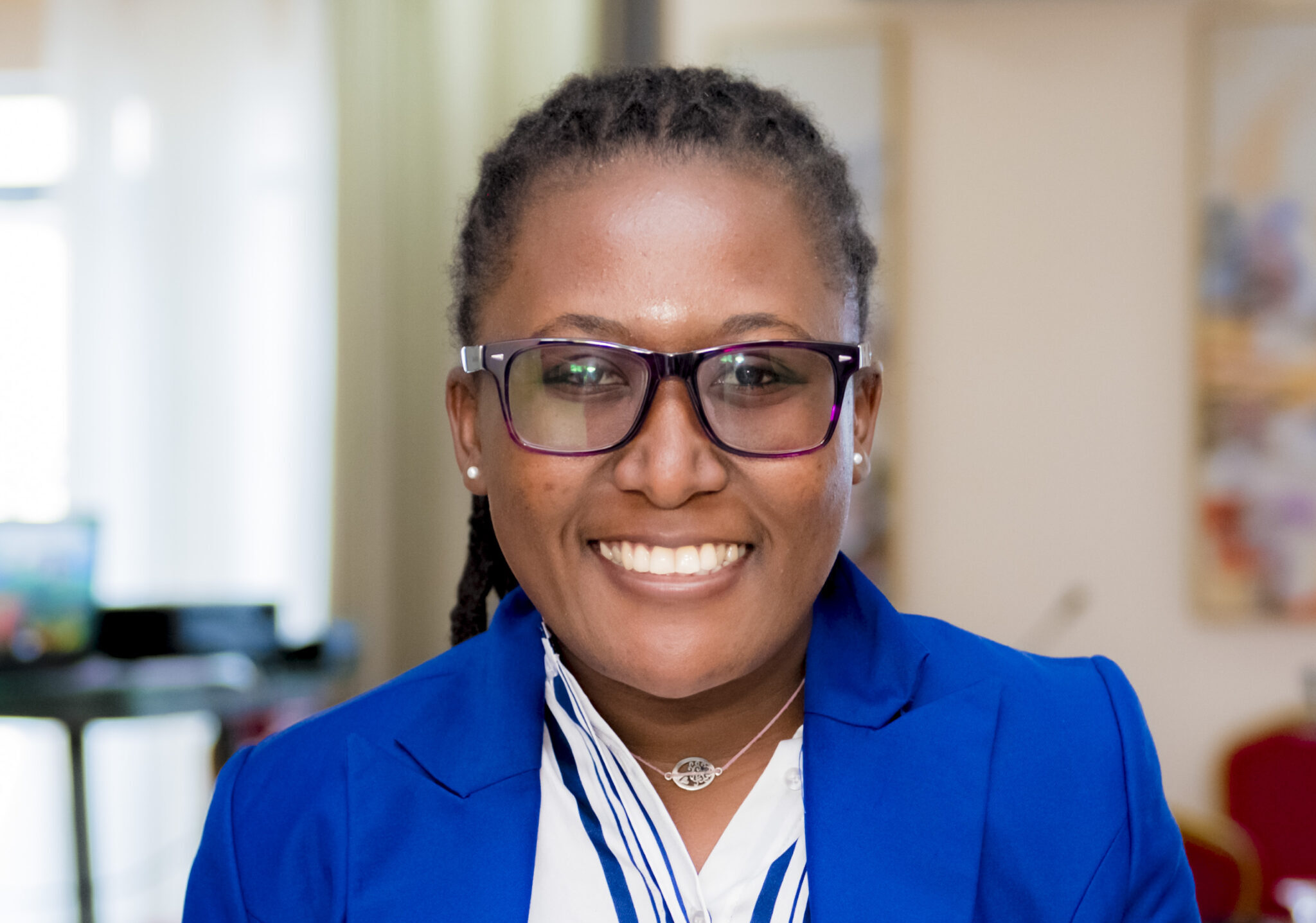
PARTNERS IN PROGRESS
Girls for Climate Action in Uganda are building a movement of young stewards for the earth rising up for climate justice. They are calling for meaningful youth engagement, including providing more space and opportunities for young leaders to participate in the internal processes of the UN.
3. SOLIDARITY WITH FEMINISTS IN PALESTINE AND ISRAEL
Around the world, millions mobilized in massive international protests against the genocide of the Palestinian people. We joined feminist movements and allies in calling to for a ceasefire and an end to the genocide, collective punishment, and forcible transfer of Palestinians. In our network, we have lost colleagues and community members in Gaza as well as in Israel. We mourn them, and all of the thousands of other lives lost in Palestine and Israel. We condemn Hamas’s attacks on civilians on October 7 and call for a return of the hostages, and we condemn state leaders in Israel and the United States who have led a violent escalation and blocked critical humanitarian aid in Gaza, leading to thousands of additional civilian deaths.
PARTNERS IN PROGRESS
Gun Free Kitchen Tables, a project of the Isha L'Isha Feminist Center, is a coalition of 19 feminist organizations working to create a world without civilian armament, particularly within Jewish communities in Israel. At this pivotal moment, the organization is actively responding by opposing the government's lethal small-arms proliferation program. Additionally, Gun Free Kitchen Table is establishing a working group to gather data on the armament of security "squads" in multiple municipalities and communities. They are also demanding that the Welfare Ministry get involved in gun licensing, since they keep records of men who have a history of committing domestic violence.
YOUR GIFT DOUBLED
FOR GENDER JUSTICE
4. CELEBRATING DISABILITY JUSTICE & HONORING DISABLED ANCESTORS
A cohort of feminist groups is working to transform the landscape for disability rights in the Solomon Islands and globally. Thanks partly to their activism, in June 2023, the Solomon Islands became the 187th country to ratify the Convention on the Rights of Persons with Disabilities. Now, local disability rights groups are continuing their advocacy to ensure the treaty translates into meaningful change for Solomon Islanders with disabilities.
This year, we also honor Judy Heumann, who passed away at the age of 75 in May. She was an internationally recognized advocate for people with disabilities whose legacy includes spearheading laws establishing disability rights. As a young adult, she was the first teacher in New York City to use a wheelchair. Her activism also included leading a 24-day sit-in that was part of a series of protests that led to the Americans with Disabilities Act in 1990.
PARTNERS IN PROGRESS
Since 2008, the Disability Rights Fund (DRF) has supported disability rights organizations around the world to participate in the ratification, implementation, and monitoring of the Convention on the Rights of Persons with Disabilities (CRPD), an international treaty that promotes, protects, and respects the rights of persons with disabilities and creates stronger protections against violence and discrimination.
5. LGBTQI+ LAWS IN FLUX
In May, Uganda’s President Yoweri Museveni signed the Anti-Homosexuality Act into law, making being LGBTQI+ punishable by life in prison—and even death. Young LGBTQI+ people in Uganda have been hit especially hard by the new law. Many of Uganda’s queer and trans youth live in LGBTQI+ youth shelters after being kicked out by their families, but under the new law, these shelters are subject to raids and arrests.
In a historic victory, Spain passed a trans equality law that approved self-determination of gender on identification papers. The new law depathologizes trans identities, allowing anyone over 16 to change the gender on their identity card and passport by declaring their gender at the civil registry office and confirming this decision three months later. Previously, trans people in Spain had get both a medical diagnosis of gender dysphoria and spend two years in hormonal treatment.
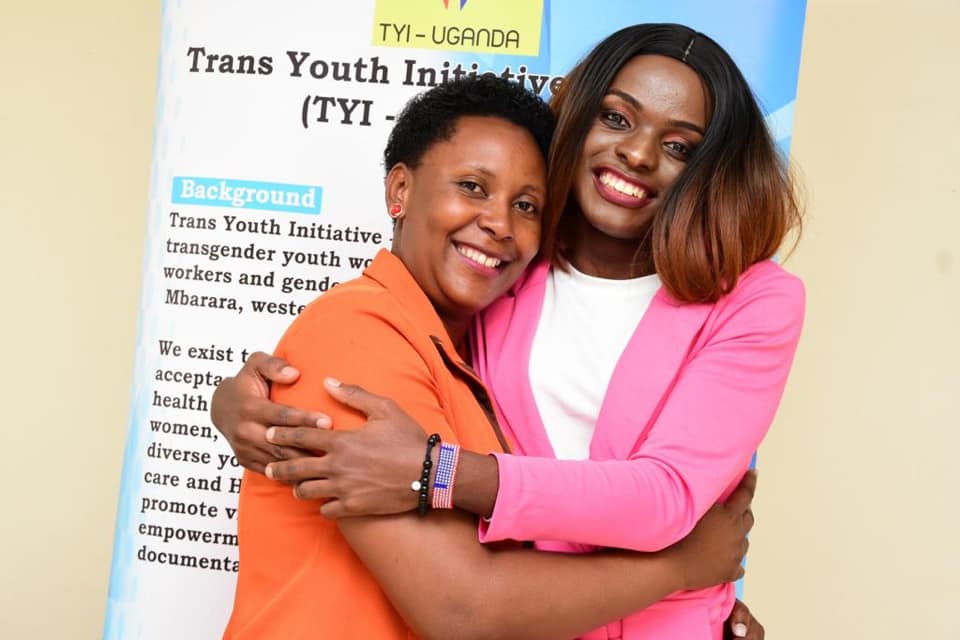
PARTNERS IN PROGRESS
Trans Youth Initiative-Uganda and Youth Fraternity for Change are two groups offering wraparound support for queer and trans youth in Uganda, including through hotlines and mental health services. They have also set up crisis funds for emergency shelter, medical costs, and legal support in case of arrests. Women Human Rights Defenders Network Uganda is providing relocation support and direct assistance to meet the basic needs of LGBTQI+ women human rights defenders affected by the law. They are also hosting a one-day retreat that will offer a safe space for these activists to come together for social support, connection, and healing.
6. SUDANESE WOMEN’S RIGHTS GROUPS ACHIEVED A STEP FORWARD FOR ACCOUNTABILITY FOR SEXUAL VIOLENCE
Since the outbreak of war on April 15 between military and paramilitary factions, women human rights defenders (WHRDs) and peace activists in Sudan have led responses to the catastrophic humanitarian crisis. More than 6 million people have been displaced. Women and girls in conflict zones in Darfur and Khartoum have faced systemic sexual and gender-based violence (SGBV); in Darfur, conflict-related sexual violence (CRSV) has been driven by ethnic bigotry and genocidal intentions. And WHRDs demanding justice for these crimes have been the targets of military violence. On December 3, the UN political mission to Sudan ended, the result of a request from Sudan’s foreign minister, which means the government and paramilitary forces may feel emboldened to commit further atrocities.
Amid the war, WHRDs and women’s rights groups have mobilized to call for peace and the protection of women and girls. Their efforts for accountability and justice for survivors of CRSV recently bore fruit with the UN HRC establishment of an independent fact-finding mission with a mandate prioritizing investigation of SGBV.
7. FEMINIST PHILANTHROPY TAKES HISTORIC ACTION ON POLICY AMID CUTS TO GENDER EQUALITY INITIATIVES
Gender equality work is under attack globally—and feminist philanthropy is responding with a collective voice and collective agenda. Republican legislators in the United States Congress recently failed to reauthorize $1 billion in funding for PEPFAR, a critical program to fight AIDS, tuberculosis, and malaria worldwide. PEPFAR, which started under the Bush Administration and has been credited with saving more than 25 million lives, has always enjoyed bipartisan support. However, and despite the absence of evidence, Republicans have made false claims to suggest that PEPFAR may be supporting abortion.
These same false claims by members of the GOP recently resulted in USAID withdrawing funding from Global Fund for Women to support climate justice movements and crisis response in Africa, the Pacific Islands, and the Caribbean—without any evidence that funding is supporting abortion.
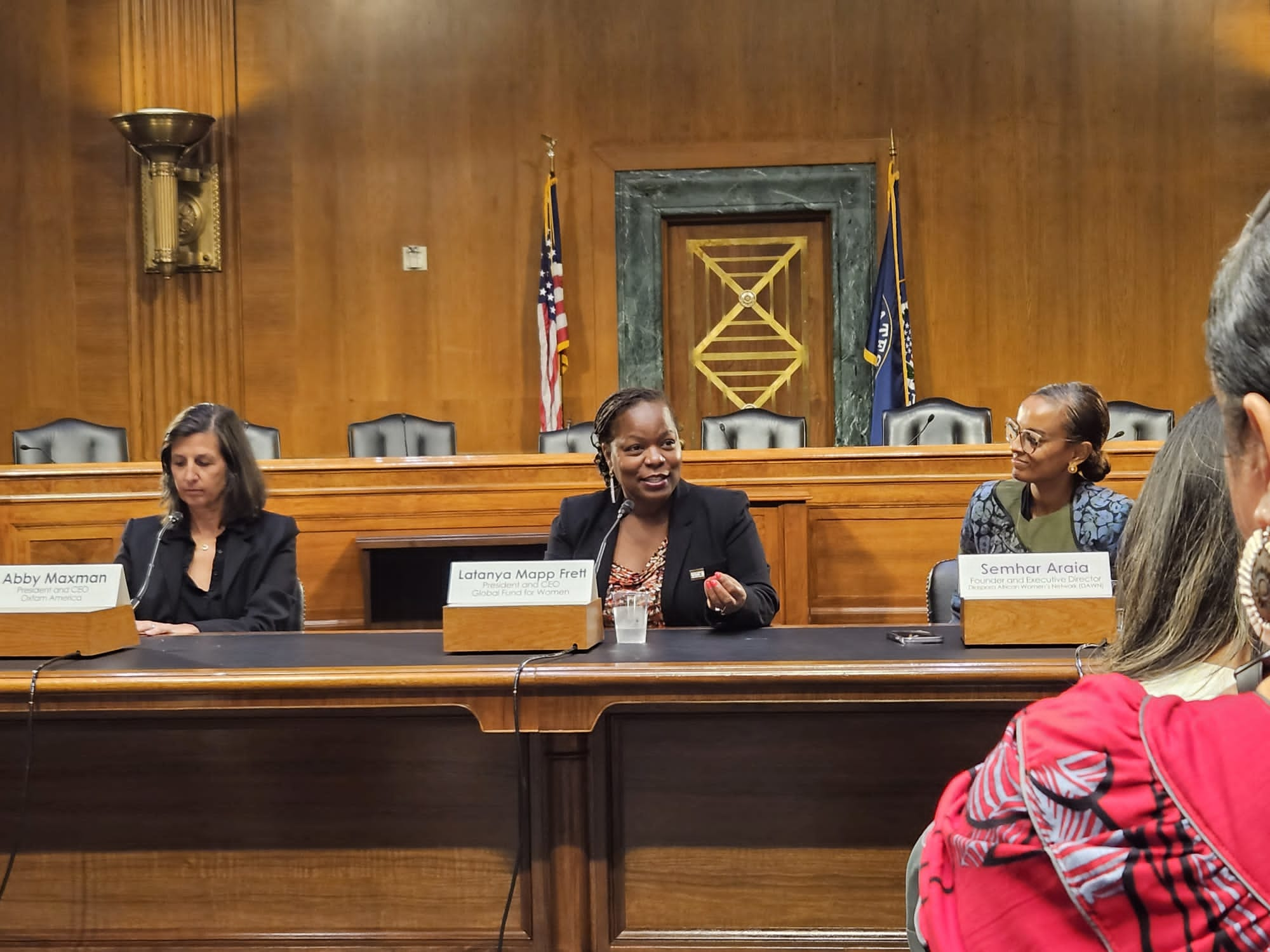
PARTNERS IN PROGRESS
On September 12, the Women’s Funding Network (WFN), the National Women's Law Center, Global Fund for Women, Justice and Joy National Collaborative, Justice for Migrant Women, National Organization for Women, and Mosaic gathered for Feminist Philanthropy Hill Day to educate United States congressional representatives to take a gender-informed approach to policy in the United States and around the world. Together, we’ll keep fighting to ensure that women, girls, and ALL marginalized people around the world have access to both equity and equality.
8. MORE CRISES, MORE FEMINIST CRISIS RESPONSE
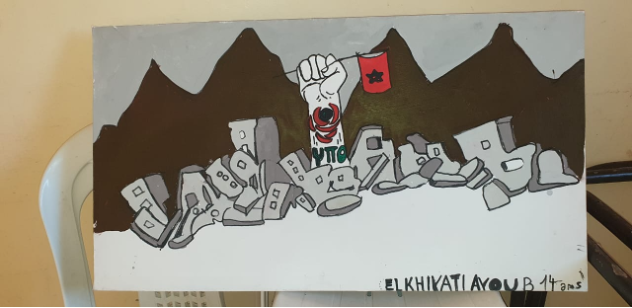
A quick review of 2023 reveals the work of grassroots feminists showing up for their communities after earthquakes shook Turkey, northern Syria, Morocco, and Afghanistan; amid the ongoing wars and military conflicts in Sudan, Ukraine, Israel, Palestine, and the Democratic Republic of the Congo; and for the clean up from destruction caused by Cyclone Freddy in Malawi, Zimbabwe, Mozambique, and nearby countries—as well as Hurrican Otis in Mexico and Storm Daniel in Libya, and Tropical Cyclones Mal and Lola in the Pacific.
Feminist leaders know that these compounding crises are not apolitical accidents—they are borne out of colonialism, exploitation, and authoritarianism. Around the world, feminist crisis responders showed up year-round to address crises at the root, focused on immediate response, medium-term rebuilding, and long-term resilience.
PARTNERS IN PROGRESS
In the wake of a devastating earthquake in September, Foundation YTTO is advocating for their community's needs as they fight for girls’ rights, equality, and citizenship in Morocco. Far from Marrakesh, Fondation YTTO runs a caravan program to address gender-based violence in Morocco’s rural villages. While this partner group is safe, the villages and women they regularly visit faced total devastation and a lack of infrastructure after the earthquake—villages mostly inhabited by Indigenous Amazigh communities who have long borne the brunt of discriminatory laws and practices. Foundation YTTO is providing shelter and working toward securing long-term housing for survivors of violence and running educational programs to ensure girls stay in school.
9. FEMINIST ACCOUNTABILITY FOR GENERATION EQUALITY
Two years after the Generation Equality Forum (GEF) announced $40 billion in commitments to advance gender equality worldwide, grassroots feminists are working tirelessly to transform these commitments from promises to action. Global Fund for Women is proud to be partnering with 30 feminist organizations to hold governments, institutions, foundations, and other stakeholders accountable for the pledges they made at the GEF in 2021. A close look at the 2,500+ commitments shows that the Feminist Action for Climate Justice Action Coalition has the least amount of funds promised—less than 1% of the total GEF commitments reported. The Feminist Accountability Framework aims to influence the future of the climate crisis by centering those most affected.
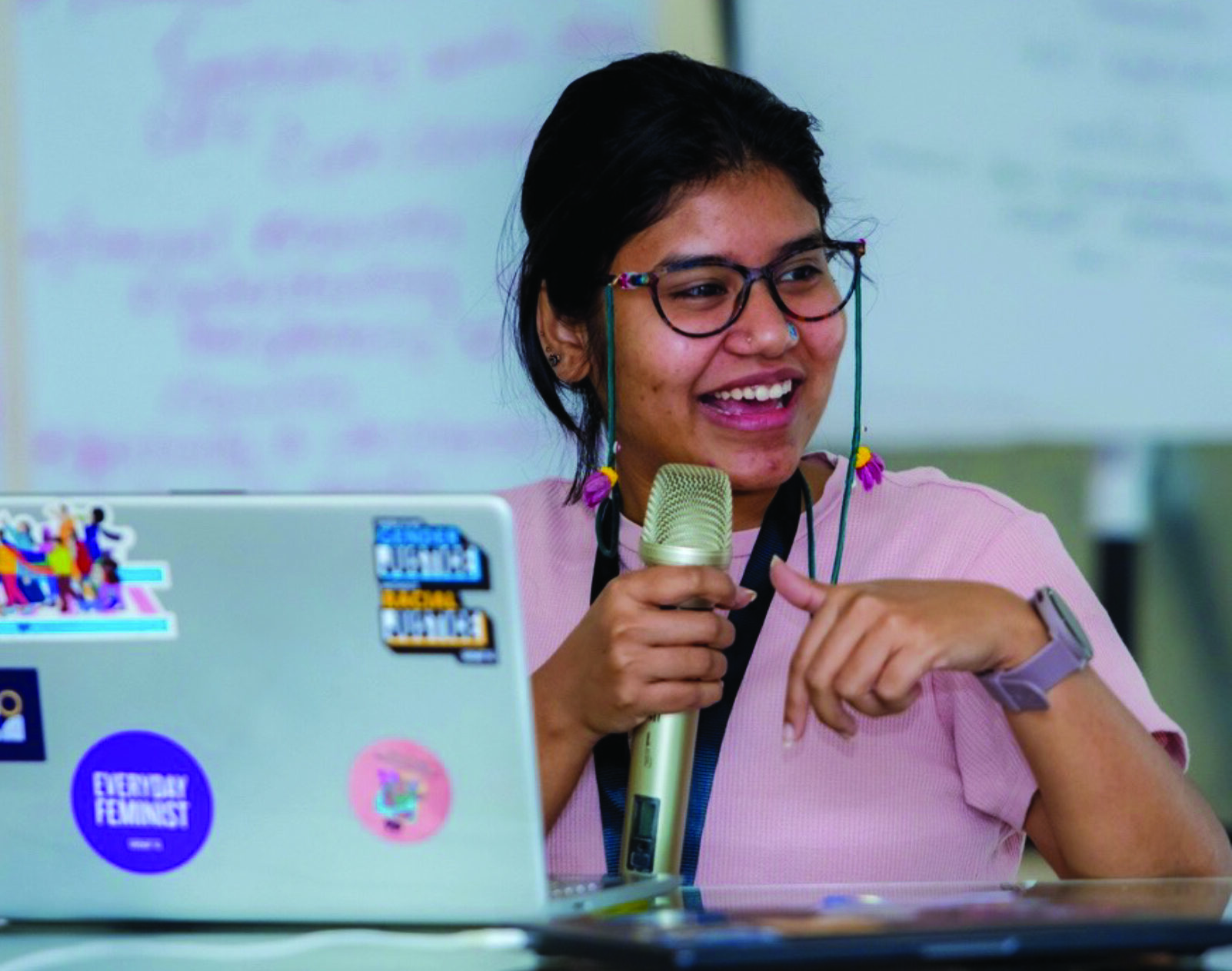
PARTNERS IN PROGRESS
In July 2023, Feminist Accountability partners gathered in Rwanda to check in on their progress, celebrate wins, and strategize together for even deeper impact. Deepshikha Ghosh was one of the youth activists who attended. She is the Director of Programs and Policy Engagement at the YP Foundation, which mobilizes young people to build their own movements for transformative change.
Movements for gender, climate, and racial justice are organizing and building power for decades, not years. In 2023, they continued to lay groundwork for the long-term—and scored victories along the way. As we look to 2024, consider showing your gratitude with a gift to the brave and determined feminist activists, movements, and leaders who showed up in 2023.
